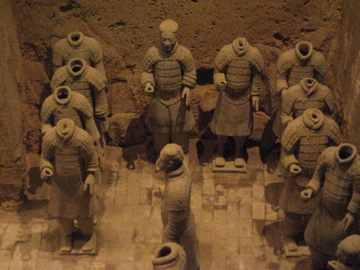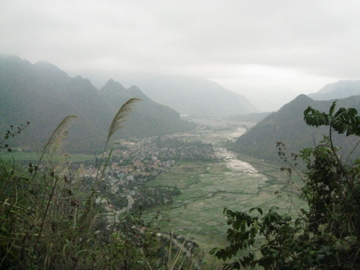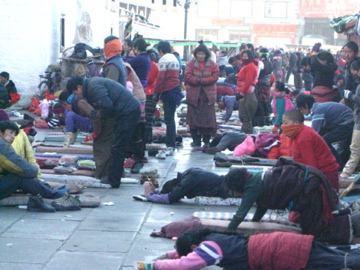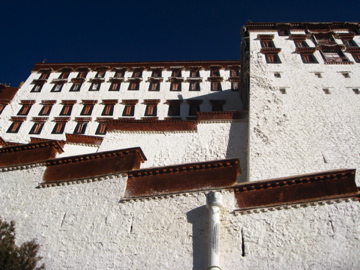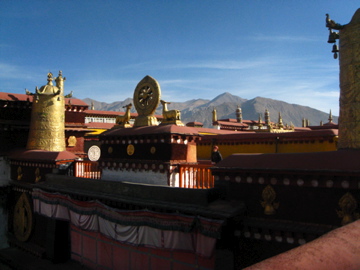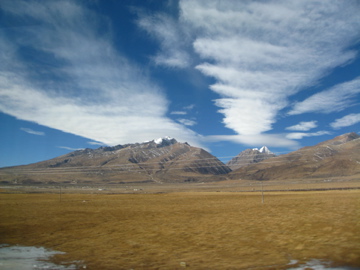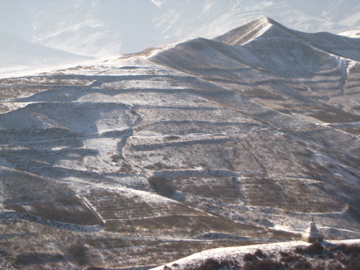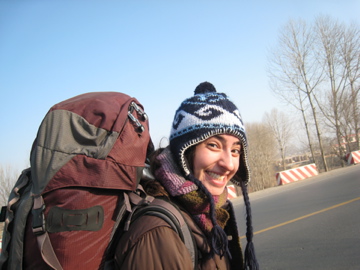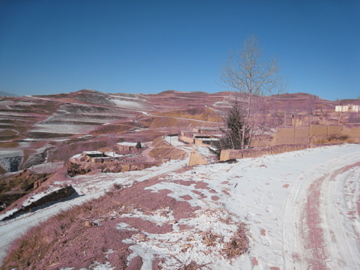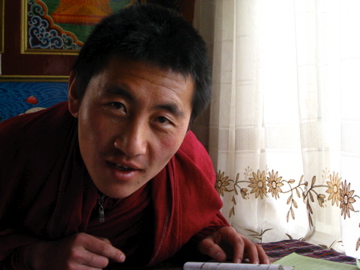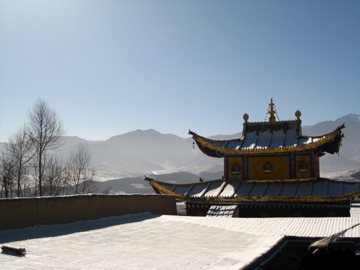1 May 2010
On the train to Xi’an:
An older man reads the newspaper across from me. He is dressed in his Chinese navy blues, a jacket my grandfather might wear. But his feet! He wears little black and yellow puma sneakers.
Xi’an:
Here it feels like old China, the China I imagined before arriving. A little bit of Delhi’s chaos here, the Asia crazy I am used to, long for. There are winding streets that smell of food, spices.
I love China when I am traveling in it. I have come here with my students, and after seeing the infamous and astounding Terracotta Warriors, we find ourselves at the Wild Goose Pavilion. I wait for the girls outside while they explore. Chinese Buddhist monks dressed in traditional gold clothing traverse the old stone walkways in front of me. What is the divine if not tradition?
Later, waiting for the train:
If I were younger, I would be sitting on these stoops because they are fun. But today, I sit on them because I am one of the many travelers who would prefer to wait outside than in the large factory of the train station; in and out, in and out they push Chinese faces through a sea of others like themselves into distant and more distant cities.
I sit amongst these travelers as one of them, resting for a brief instant from the thronged city. For today is May Day, a special day, one of celebration . Couples and families flocked to the parks to stroll and sit and relax amongst the flowers and rock gardens.
A group of Hui women wear sequined scarves on their heads to match their peach and pnk shirts. They sit in a circle of heat-lazy anticipation, waiting in this shaded spot, though it offers little cool. Their husbands form a circle next to them and focus on the stories told by the eldest.
This underpass is full of little groups such as this. Some Hui, some Han, some playing cards some silent in thought. Many with blank, waiting faces. I am the only one who writes—for Americans to sit idle is wasted time. But I watch the folk around me, content in their simple rest. Though I sit among them, like them, though I have adopted pieces of their language and their ways, I will never be able to imagine in full what they might be thinking.

